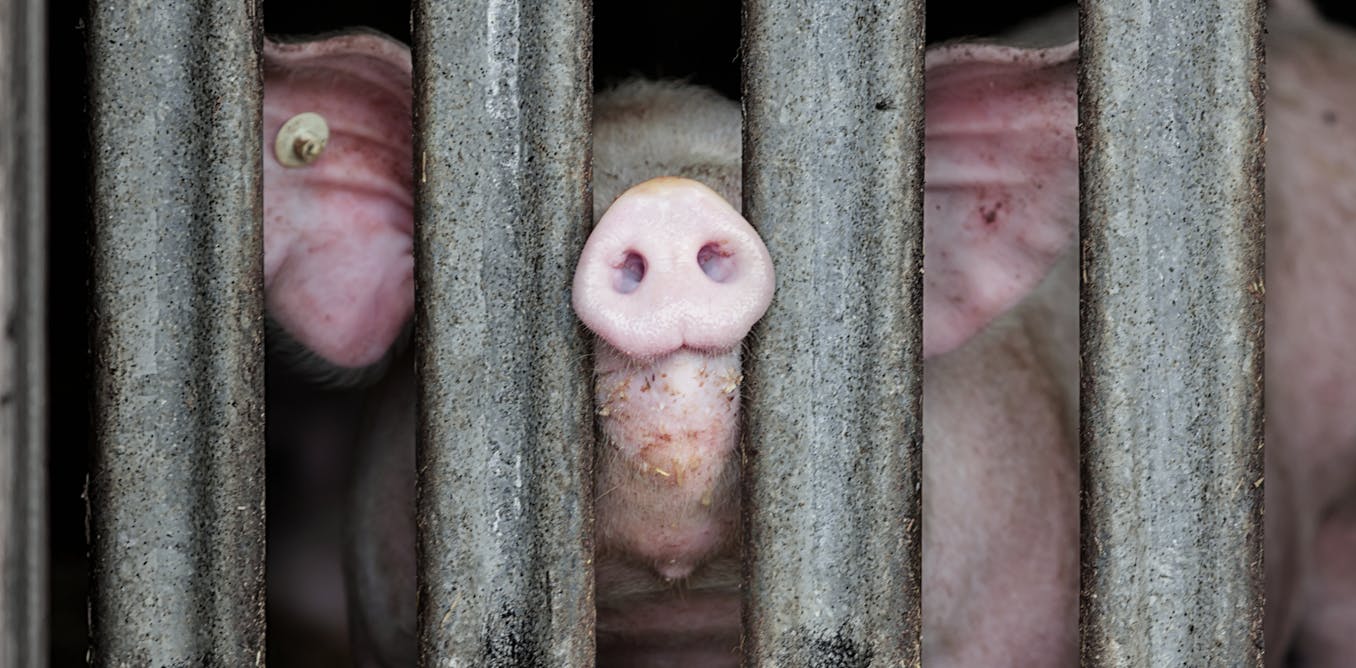Prime Minister Giorgia Meloni’s attacks on Italy’s cultural heritage – from libel suits against intellectuals to her government’s censorship of texts critical of Mussolini – have made headlines across Europe. Less attention, however, has been granted to the agricultural minister’s blows on the country’s natural heritage. Francesco Lollobrigida, who has held this position since October 2022, is a lawyer who cut his teeth on politics at the neo-fascist party Italian Social Movement before joining Fratelli d’Italia in 2012.
Italy’s “war” on wild boars
On May 5, Lollobrigida passed a law intended to fight African swine fever, a disease spread from wild boars to other animals. The law earmarked 5 million euros toward that effort in 2024 and 15 million euros in 2025. But what is mostly criticised in the Italian media is that it changes the status of forest guards, who are now no longer under the environment ministry but the agriculture ministry.
The move came in response to the demands of hunters interested in removing all limits on the number of wild boars killed. Lollobrigida did more: he hired 177 rifle-equipped soldiers from the national army to join hunters. The Meloni government has declared a war on wild boars and to those who protect them. Animal-rights activists who would oppose the killing could be jailed for 24 hours under the new law.
What is African swine fever?
African swine fever (ASF) was first detected in Kenya in 1921 by a British veterinary surgeon, Robert Eustace Montgomery. He explained that the disease was more severe than “classical” or “European” swine fever because it was transmitted from African warthogs to pigs on colonial farms.
ASF is an epizootic, meaning that it has only been transmitted between animals of pig family. It is not transmitted from pigs to humans, like the H1N1 “swine flu”, which caused a pandemic in 2009-2010, or the H5N1 “bird flu”, which has killed half the humans it has infected. While asymptomatic in warthogs, it affects wild boars and ravages domestic pigs raised in industrial farms, who die with a lethality rate of 100% when the farm is infected.
We know that this haemorrhagic fever is caused by a DNA virus that can remain infectious for several months in animal substances – excrement, meat (including after salting) saliva, sweat, etc. Contamination occurs either through direct animal-to-animal contact (notably via blood, syringes or equipment on farms), or via ticks of the genus Ornithodoros.
Zohrabs/Pexels, CC BY-NC-SA
Hundreds of millions of pigs culled
ASF arrived on the European continent in 1957, with cases in Sardinia, Spain, Portugal and France. It was not considered a serious disease in southern Europe, but then was detected in Georgia in 2007, with a highly lethal new strain that was similar to one circulating in Madagascar.
From Georgia, ASF spread to Russia, Poland, Ukraine and the Baltic states. In 2019 the disease struck hard in China. While the country only reported culling of 1 million animals, based on its apparent effect on the rise in pork prices, China could have lost half of its pigs – 200 million animals – to ASF.
In 2017, the European Commission reported the presence of infected carcasses of wild boars in the Czech Republic and again, in 2018, in Belgium. In March 2023, it instructed a strict control policy to ensure that the outbreaks of ASF in the former Soviet Union and China would not occur on its territory. Farmers were banned from rearing pigs outdoors, feeding grass or hay to pigs in closed farms, or moving them between farms.
These costly measures are thought to have eliminated ASF in the Czech Republic and Belgium, but its 2021 arrival in the province of Genova raised questions about this strategy. As wild boar carcasses were discovered in three Italian regions (Liguria, Piedmont, around Turin, and Lombardy, around Milan), political authorities weren’t able to quickly agree on the necessary measures and the virus continued to spread. Wild boar hunters and pig farmers have competing interests in these three regions: there are many wild boars and few pigs in Liguria and Piedmont, but many pigs and few wild boars in Lombardy.
The construction of a fence several hundred kilometres long around the areas where the infected carcasses were discovered – on the model of what was done in the Czech Republic, Belgium and between Denmark and Germany – was launched too late to contain the virus. It is now considered endemic throughout Italy, with infected wild boar carcasses discovered around Rome, in the south of Naples and in Reggio Calabria.
Covid-19 reminders
In September and October 2023, Italian health authorities ordered the slaughter of 40,000 pigs in the region between Milano and Pavia. They feared that the virus would reach farms in the region of Parma, Modena and Bologna, where “made in Italy” ham (prosciutto) is produced with a high added value and where the industry employs several thousand people. An “extraordinary commissioner” was appointed by the Meloni government, the “biosecurity” measures reminded the Italians of those taken against Covid-19 (Northern Italy was hit by the pandemic in February 2020).
While small pig farmers felt that the measures benefited industrial farms, hunters were also divided: hunters’ associations, which have long worked with farmers to limit the damages caused by wild boars through regular campaigns, were bypassed by the government, which relied on private hunting companies using thermal camera guns to kill as many wild boars as possible at night.

Associazione Progetto Cuori Liberi, CC BY

Associazione Progetto Cuori Liberi, CC BY
In September 2023, a refuge run by an animal rights association, Cuori Liberi Liberi, in the Pavia region was at the heart of a controversy. The centre hosted 40 pigs from the region’s factory farms to heal them from mistreatment. Thirty of them died of African swine fever, but the association wanted to keep the 10 pigs that had survived alive to understand why they hadn’t died from the disease.
Veterinary authorities forced their way through the activists’ blockade and killed the 10 remaining pigs. A demonstration in support of Cuori Liberi drew 10,000 people to Milan on October 7, and another demonstration in Rome on November 4 requested the Italian government to give animal protectors more rights in the event of a health crisis.
More humane disease management
As the European Commission proceeds with its policy to eradicate African Swine Fever in Western Europe, we need to think about alternatives to culling pigs and shooting boars. Vietnam and the Philippines recently launched a vaccination campaign against ASF. The World Organisation for Animal Health is closely monitoring the different disease management methods at play in Europe and Asia (outside the West Indies, there are no cases of the disease on the American continent).
Like the H5N1 virus, ASF has been managed as a threat from the wild to the domestic, and all efforts have been geared toward preventing the spillover of this pathogen across species. If swine fever and avian flu become endemic due to globalisation, we may need to rethink how to live with this virus, as humans did when it was circulating among warthogs in Africa.



